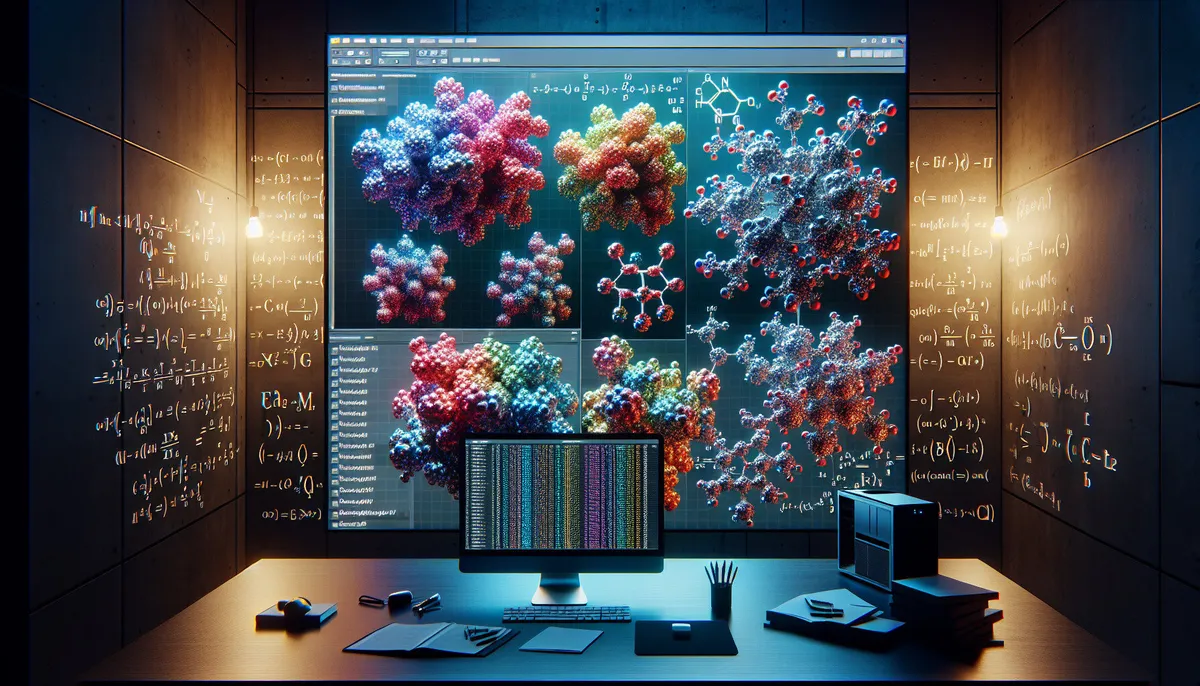
In the realm of science fiction, the concept that our entire universe might be an intricate simulation running on an advanced civilization's supercomputer has captivated the imaginations of many. However, groundbreaking research from the University of British Columbia (UBC) Okanagan has brought forth a compelling argument against this theory. The study, led by Dr. Mir Faizal, an Adjunct Professor at UBC Okanagan's Irving K. Barber Faculty of Science, along with his esteemed colleagues Drs. Lawrence M. Krauss, Arshid Shabir, and Francesco Marino, presents mathematical evidence suggesting that such a simulation is not just unlikely, but fundamentally impossible.
The findings from this research, published in the Journal of Holography Applications in Physics, extend far beyond the notion that we are merely living in a world akin to The Matrix. The team has demonstrated that the very nature of reality operates in ways that no computer could ever fully replicate. According to Dr. Faizal, while the idea of a simulated universe has been a topic of debate, their research proves that the underlying structure of the universe transcends any algorithmic understanding.
It has long been theorized that if our universe were to be a simulation, it could potentially give rise to life capable of creating its own simulations, leading to a recursive loop of simulated realities. Dr. Faizal notes that this recursive possibility raises significant doubts about whether our universe is the original one or simply a nested simulation. However, the recent research indicates that such speculations can be subjected to scientific scrutiny.
The research hinges on a fascinating aspect of reality. Modern physics has evolved dramatically from Newton's classical mechanics to Einstein's theory of relativity, and further into the complexities of quantum mechanics. Today, cutting-edge theories like quantum gravity suggest that even the very fabric of space and time may not be fundamental. Instead, these elements emerge from a deeper layer of pure information.
This pure information exists within what physicists refer to as a Platonic realm—a mathematical foundation that some argue is more real than the physical universe itself. The research team has shown that even this information-based foundation cannot be entirely described through computation. They employed powerful mathematical theorems, including Gödel's incompleteness theorem, to illustrate that a comprehensive description of reality necessitates what they term non-algorithmic understanding.
To illustrate this concept, consider the statement: "This true statement is not provable." If it were provable, it would contradict itself, creating an inconsistency in logic. Conversely, if it remains unprovable, it is indeed true, yet that renders any system attempting to prove it incomplete. This paradox highlights the limitations of pure computation in fully grasping the complexities of reality.
Dr. Faizal emphasizes that their findings confirm the impossibility of describing all aspects of physical reality using a computational theory of quantum gravity. He states, "No physically complete and consistent theory of everything can be derived from computation alone." Instead, it requires a non-algorithmic understanding, which is inherently more fundamental than the computational laws governing quantum gravity and spacetime.
The researchers further challenge the notion that the Platonic realm itself could be simulated. Their work reveals that a fully consistent and complete description of reality cannot be achieved through computation alone. Dr. Faizal explains, "It requires non-algorithmic understanding, which by definition is beyond algorithmic computation and therefore cannot be simulated." This conclusive evidence suggests that our universe is not, and could never be, a mere simulation.
Co-author Dr. Lawrence M. Krauss highlights the profound implications of this research, stating that the fundamental laws of physics cannot be confined to space and time, as they are the very constructs that generate these dimensions. Although there has been hope for a comprehensive theory that could encapsulate all physical phenomena through computations, the findings of this research indicate that this is not achievable.
In conclusion, the team’s research marks a significant milestone in our understanding of reality. Dr. Faizal asserts, "Any simulation is inherently algorithmic—it must follow programmed rules. Since the fundamental level of reality is based on non-algorithmic understanding, the universe cannot be, and could never be, a simulation." This groundbreaking study not only challenges long-held beliefs about the nature of our universe but also opens new avenues for scientific exploration in the quest for understanding our existence.